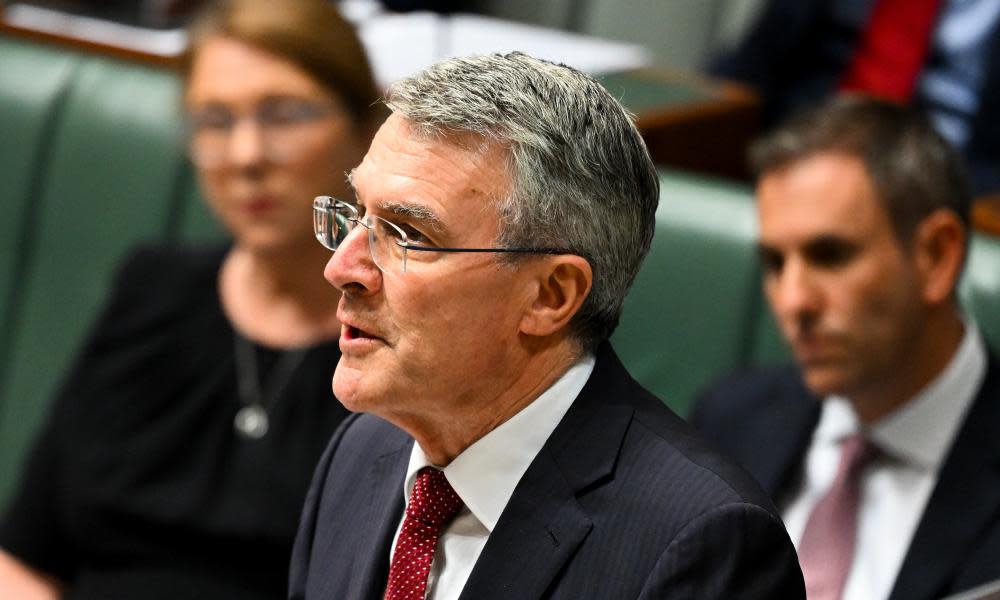More than 800 secrecy laws keeping Australian government information from the public, paper shows

Australia has more than 800 separate secrecy and non-disclosure laws criminalising the release of vast swathes of information held by the federal government, according to a new government paper.
The sheer volume and complexity of secrecy restrictions covering government information is revealed in the discussion paper, which is designed to inform Labor’s push for reforms.
The paper shows the publication of government information is restricted by 11 general secrecy offences in the criminal code, 542 specific secrecy offences contained in 178 separate commonwealth acts, and 296 non-disclosure duties in 107 commonwealth laws.
Breaching any of the 849 secrecy restrictions can attract criminal liability.
About 40% of the laws are designed to protect personal details held by the government, including names, phone numbers or addresses, bank details or health information, while 15% protect law enforcement information, and 10% protect national security matters.
Another 10% of the laws are designed to protect information which, if disclosed, could prejudice commercial interests.
The discussion paper, produced by the attorney general’s department, is part of attorney general Mark Dreyfus’s commitment to review the appropriateness of Australia’s secrecy provisions across every commonwealth portfolio. Dreyfus announced the review of secrecy laws late last year.
The paper noted that while general secrecy offences were updated in 2018, multiple reviews had “raised concerns about the number, inconsistency, and complexity of specific secrecy offences in a range of Commonwealth laws”.
The review will also probe whether the law contains enough protection for public interest journalism.
Kieran Pender, a senior lawyer at the Human Rights Law Centre, said the vast number of secrecy offences and non-disclosure duties showed the need for reform. He said many of the secrecy provisions were “unnecessary, disproportionate and lack robust safeguards and oversight”.
“Australia’s democracy suffers when government wrongdoing and human rights violations are swept under the rug of secrecy laws,” Pender said.
“All Australians should be alarmed that there are 553 secrecy offences in federal law and another 296 non-disclosure duties. Reform is needed and we welcome this important review.”
The department is asking for submissions on the suitability and appropriate framing of general and specific secrecy offences. It is also exploring whether specific secrecy offences in commonwealth legislation are no longer required due to the introduction of general secrecy offences in the criminal code in 2018.
Dreyfus’ office issued a statement on Monday saying secrecy offences were important in preventing unauthorised disclosures from harming national security and the public interest. But his office said multiple reviews had “raised concerns about the number, inconsistency, appropriateness and complexity of Commonwealth secrecy offences”.
“A comprehensive review of Commonwealth secrecy offences was first recommended by the Parliamentary Joint Committee on Intelligence and Security in 2020 but the former government never completed a review, and never made any work public,” the statement said.
“The Albanese Government is progressing this important project by launching a six-week public consultation process seeking views on the operation of secrecy provision.”
The former Labor government and then attorney general Robert McClelland commissioned a review of secrecy laws in 2009, conducted by the Australian Law Reform Commission.
That review warned that secrecy laws and the prosecution of public servants for the unauthorised disclosure of government information can “sit uneasily with the Australian government’s commitment to open and accountable government”.
The ALRC review identified 506 secrecy provisions in 176 pieces of legislation, including 358 distinct criminal offences. The ALRC’s report, which contained 61 recommendations, has not been implemented, according to its website.
The discussion paper was released shortly before Richard Boyle, the Australian Taxation Office whistleblower, learned he would face trial for alleged offences linked to his speaking out about his former employer’s alleged unethical and aggressive pursuit of debts.
Boyle is facing 24 charges, including the disclosure of protected information, stemming from his decision to collect information about the debt recovery practices at the ATO prior to blowing the whistle internally and then externally, including to the ABC.
Boyle had attempted to use whistleblower protections, contained in the Public Interest Disclosure Act, to shield himself from prosecution. The South Australian district court ruled the whistleblower protections could not be used.
The government’s efforts for broader reforms to secrecy laws come as another watchdog, the Independent National Security Legislation Monitor, conducts a specific review of the National Security Information Act.
The NSI act is designed to protect sensitive national security information during court processes, but critics say it goes too far in compromising open justice.
That review is also calling for submissions. Questions guiding its call for submissions show the INSLM will consider whether the NSI Act should be repealed.
It has asked for submissions on “whether the interaction of the protection of national security information and the public adjudication of disputes according to law would better occur if the NSI Act were repealed”.

 Yahoo News
Yahoo News 
